Genre: Puzzle Developer: Epyx Publisher: Super Fighter Team Players: 2 Released: 2015
Super Fighter Team is mostly known for bringing RPGs to the Genesis, but it recently seems to be branching out into new genres. Complimenting the cute-’em-up Magic Girl Featuring Ling Ling the Little Witch is Cascade, a futuristic puzzle game. Players take control of a ship on its way to the planet Cascadia that uses dice as its fuel, and combining the dice powers the engines. Originally designed by Epyx, Cascade was slated for a Japan-only release, but for some reason it never made it to store shelves, even though it was essentially finished. Now, decades later, it’s finally given a worldwide release, and players have the chance to see how it stacks up to the rest of the Genesis puzzle library.
Contrary to other puzzlers, Cascade plays from the bottom up instead of top-down. A wise-cracking alien on the left shoves dice down a belt to the bottom of the screen, and players must then accommodate them on the playfield. The object of the game is to create “cascades,” or combinations of four-of-a-kind or straights (one, two, three, etc.) using six-sided dice. It’s possible to combine dice vertically, horizontally, and even in a swerving pattern, though for some reason diagonal combinations are not allowed. It’s also not permitted to place two dice of the same value next to each other, and this forces players to think ahead before placing their dice. Several dice can be chained for big points, similar to the four-line moves in Tetris. String several dice together correctly and they will turn yellow. Complete the string to make them all disappear and add to your score. Successfully creating combinations adds power to the ship (also, dice with stars on them will pump the warp plug significantly), and once it reaches full power it can warp to the next level. Complete all seven levels to reach the planet Cascadia. Let the dice linger too long onscreen and they turn transparent, indicating that the dice are about to decay. Once they disappear, the ship loses power. If the entire screen is filled with dice, it’s “game over.” The game will also end if the ship’s power bar drops completely (the screen will flash and an alarm will sound when power is critically low).
By far, the best way to play Cascade is in the two-player mode, which is far more engaging. It’s here that players will really learn all the best tactics and strategies for creating the proper dice combinations. Both players take dice from a single source, and quickly matching dice will let one player take dice from the other. A meter at the top of the screen determines who’s winning, and combinations fill the meter, with the larger ones filling it more quickly. I did like that it was possible to adjust the starting difficulty for a particular player, as this helped even things out when playing with someone who was inexperienced (hint: dad won; kids lost and cried!).
While there’s no chance of Cascade awing anyone with its presentation, what’s there is decent. Graphically, the game doesn’t offer much, which doesn’t surprise me for a puzzle title. The playfield is pretty plain, and there aren’t any special effects when you clear dice or warp to another level. The audio is just as average. A single, looping track spans the entire game, which kind of makes sense given that the whole affair is only seven levels long. Still, I would have at least liked a selection of two or three tunes to select for my experience. Always playing to the same song can be really repetitive.
I have to say that while I did enjoy Cascade, I didn’t find its gameplay as appealing as many of the other puzzle games on the Genesis. The original Columns is my favorite on the system, and Cascade’s single-player mode isn’t any competition. There are very no modes from which to choose aside from single or two-player, and with only seven levels, it’s all over far too quickly. The game never gives players the chance to really dig into the mechanics in this mode. I also didn’t like that I can’t play for score, as I can in other puzzlers. The idea of an end objective is nice, but Cascade isn’t long enough to let old school players try for a real high score. Points are indeed tracked, but it’s not the same when the end is so close. I remember playing marathon sessions of Columns with a friend of mine back in the day. It was incredibly intense when it got to the higher stages, and the whole affair could go on for hours until someone make a critical mistake. This is simply not possible in Cascade.
Cascade may not be among the Genesis puzzle elite, but it’s fun for a while in single-player mode. Those who don’t like to challenge others might want to look elsewhere for their lone-player fix, but puzzle fans who like taking on a friend will enjoy Cascade’s multi-player mode. With gameplay that’s easy to learn but hard to master (where have you heard that before?), Cascade has its merits, but I don’t know how long it will hold players’ interest. Multi-player is fun, but the game modes are too sparse and there are far too few levels in single-player mode, so your mileage may vary. I do wish there were a bit more meat on this one, but what’s there is still worth checking out.
SCORE: 6 out of 10

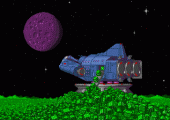
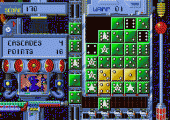
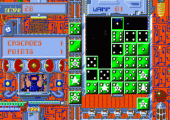
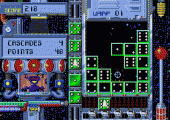
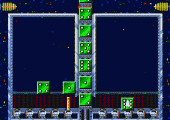
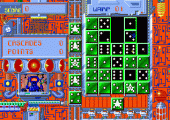
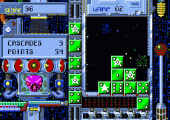
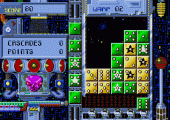

Recent Comments